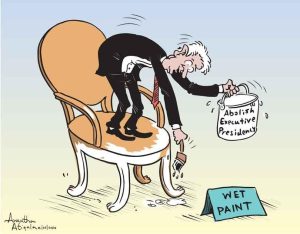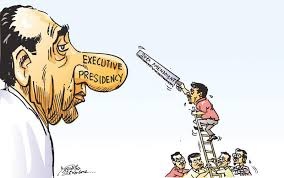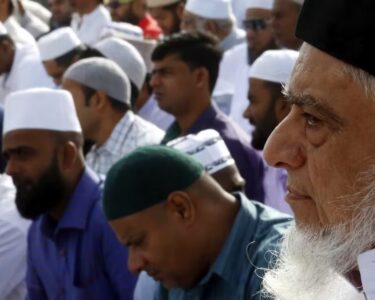Abolishing the Executive Presidency?
A swirl of speculation surrounds President Ranil Wickremesinghe’s possible gambit of abolishing the Executive Presidency, raising questions about his motivations and the potential impact on the nation’s political landscape.

Fuelling the rumours:
Unfavourable polling numbers suggest Wickremesinghe may face an electoral challenge.
Major opposition parties have long advocated for dismantling the Executive Presidency, presenting a potential alliance opportunity.
Historical precedent exists, with J.R. Jayewardene successfully transitioning from Prime Minister to Executive President through amendments.
Obstacles on the path:
Mustering a two-thirds majority in Parliament remains a significant hurdle for the current government.
The main opposition party’s internal conflicts could complicate any potential collaboration.
Former presidents’ personal agendas may influence their stances on the proposed abolition, adding another layer of complexity.

The bigger picture:
This political maneuver, if pursued, carries substantial weight, necessitating objective analysis and avoiding fueling speculation.
The potential elimination of the Executive Presidency raises critical questions about power dynamics, democratic principles, and underlying motivations.
It remains to be seen whether this rumour translates into concrete action and, if so, what ramifications it will have for Sri Lanka’s political future.







